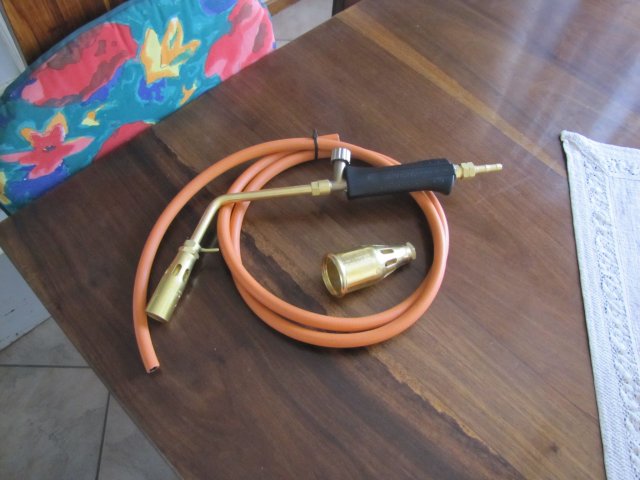- Joined
- Jan 19, 2010
- Messages
- 1,193
- Reaction score
- 41
Hey guys, thought I would share a bad experience with you.
I was making a boiler for use with some small steam engines I had. I used an old propane bottle and some copper tube. I had a pressure guage and steam dome on top with two water tubes made out of copper on the bottom. With a homemade burner I was making steam in no time. NOW, here is the bad part, I used electric solder to peice everything together. I pressure tested it to 140 psi, and held it for a half hour. So I though I was good to steam it to 60 psi. Well I was wrong, It pressured up and with out any warning BOOOOOOM there goes the steam dome and pressure gauge accross the shop and boiliing hot steam went shooting out the top, and there I am standin not but two feet from the thing and did not even get a drop of water. needless to say I have not pressured the boiler up again and am verry apprehensive to ever do it again. I was lucky but i might not be next time.
the morel,
DONT USE ELECTRICLE SOLDER TO MAKE BOILERS
kel
I was making a boiler for use with some small steam engines I had. I used an old propane bottle and some copper tube. I had a pressure guage and steam dome on top with two water tubes made out of copper on the bottom. With a homemade burner I was making steam in no time. NOW, here is the bad part, I used electric solder to peice everything together. I pressure tested it to 140 psi, and held it for a half hour. So I though I was good to steam it to 60 psi. Well I was wrong, It pressured up and with out any warning BOOOOOOM there goes the steam dome and pressure gauge accross the shop and boiliing hot steam went shooting out the top, and there I am standin not but two feet from the thing and did not even get a drop of water. needless to say I have not pressured the boiler up again and am verry apprehensive to ever do it again. I was lucky but i might not be next time.
the morel,
DONT USE ELECTRICLE SOLDER TO MAKE BOILERS
kel


































































